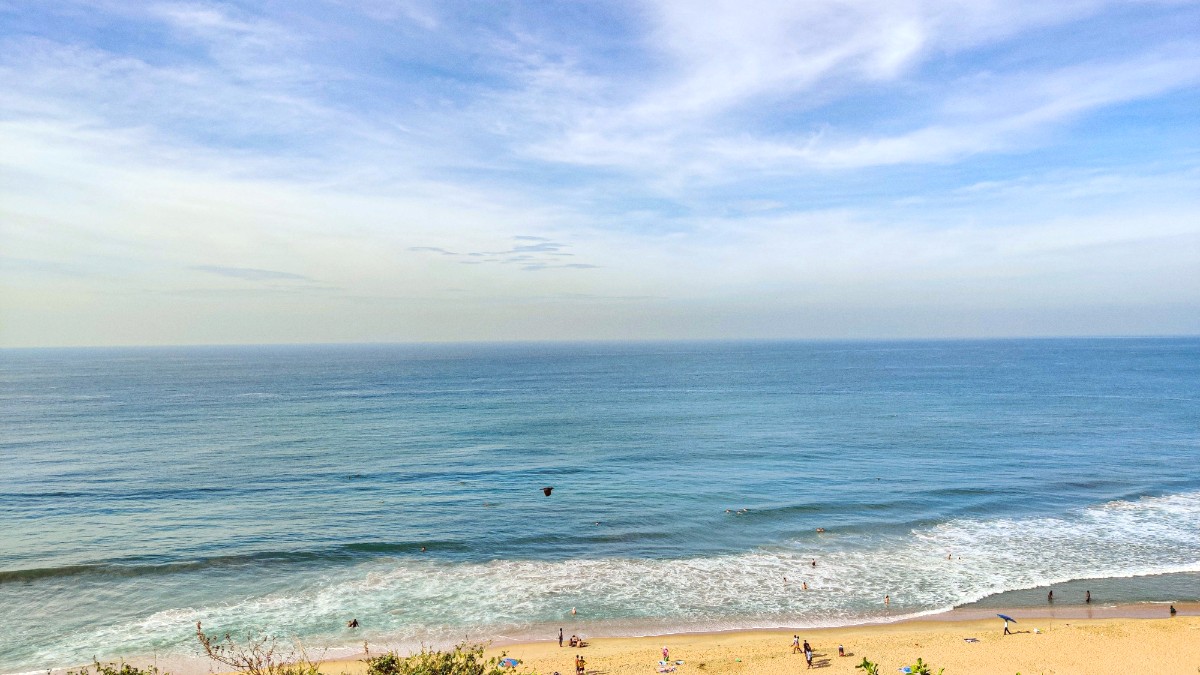
Kerala, India
Varkala's unique geological formation (the Varkala Cliff) and coastal environment are subject to environmental regulations. Local authorities and community groups work to keep beaches clean and manage waste. Support these efforts by not littering.
India struggles with comprehensive waste management and recycling. Reduce your waste. Minimize single-use plastics: carry a reusable water bottle (many cafes offer refills), use a reusable shopping bag. Dispose of waste in designated bins; avoid littering.
Kerala receives abundant rainfall, especially during monsoon. However, responsible water use is still important. Water supply in some areas is inconsistent, and energy for pumping and treating water exists. Take shorter showers and turn off taps when not in use.
Minimizing your environmental footprint is an important part of responsible travel in Varkala.
Varkala itself is not a formally designated protected area, but its unique geological formation (the Varkala Cliff) and the coastal environment are subject to environmental regulations. Efforts by local authorities and community groups keep the beaches clean and manage waste.
Consider offsetting the carbon emissions from your flights. Many reputable organizations offer carbon offset programs where you contribute to projects that reduce greenhouse gases, like renewable energy initiatives or reforestation efforts.
Look for properties and tour operators that advertise eco-friendly practices. These include using solar power, waste reduction, local food sourcing, or community conservation efforts.
When packing, consider bringing items that minimize your waste production. This includes reusable alternatives to single-use plastics.
Carry a reusable water bottle and refill it. Use a reusable shopping bag. Choose products with minimal packaging.
Dispose of waste in designated bins. Avoid littering, especially on beaches and in the ocean. Carry waste until proper disposal possible.
Interacting respectfully with Varkala's local culture creates a rewarding part of your trip.
Support the preservation of local traditions by respecting dress codes, engaging respectfully in cultural events, and showing interest in the local language and customs. Your positive interactions help maintain the authenticity of the cultural experience.
Always ask for permission before taking photos of individuals, especially women and children. A simple gesture or "photo?" often works. Patience and politeness are . Things move at a different pace. A smile and "Namaskaram" are well-received.
Always remove your shoes before entering homes, temples, mosques, or other religious places. Ensure shoulders and knees are covered. At Hindu temples, men sometimes remove shirts and wear a dhoti.
Remove shoes before entering sacred spaces.
Cover shoulders and knees; specific rules for men at Hindu temples.
Maintain respectful silence. Do not point feet at deities or people. Consult staff for offerings.
Being aware of and adapting to local customs enriches your travel experience and demonstrates respect for the community.
Ensure your travel benefits the local economy and community in Varkala.
While Varkala is tourist-heavy, seek out opportunities that directly support local communities. This includes staying in locally-owned homestays, eating at family-run restaurants, and purchasing goods from local artisans rather than large, externally owned businesses.
Look for products sold by co-operatives or directly from artisans. This money directly to the producers. Bargaining is common in local markets. Do it fairly and with respect for the vendor's livelihood. Do not drive prices down to an exploitative level.
Prioritize spending your money at local guesthouses, family-run restaurants, small independent shops, and local tour guides. This distributes wealth within the community and supports local entrepreneurs.
While it can be difficult, avoid giving money directly to beggars, especially children. This perpetuates dependency and potentially supports organized begging rings. If you wish to donate, contribute to reputable local charities or non-governmental organizations (NGOs) that education, health, or poverty alleviation.
If you wish to contribute charitably, identify legitimate local NGOs or community projects focused on areas like education, health, or environmental protection. This ensures your contribution has a lasting positive impact rather than fostering dependency. Your accommodation or local guides might recommend trusted organizations. Consider The Rainforest Site (GreaterGood) for conservation efforts.
Find legitimate local NGOs or community projects.
Support education, health, or environmental protection.
Contributions to organizations foster sustainable change.
A reusable water bottle and cloth bag, symbolizing sustainable travel practices.